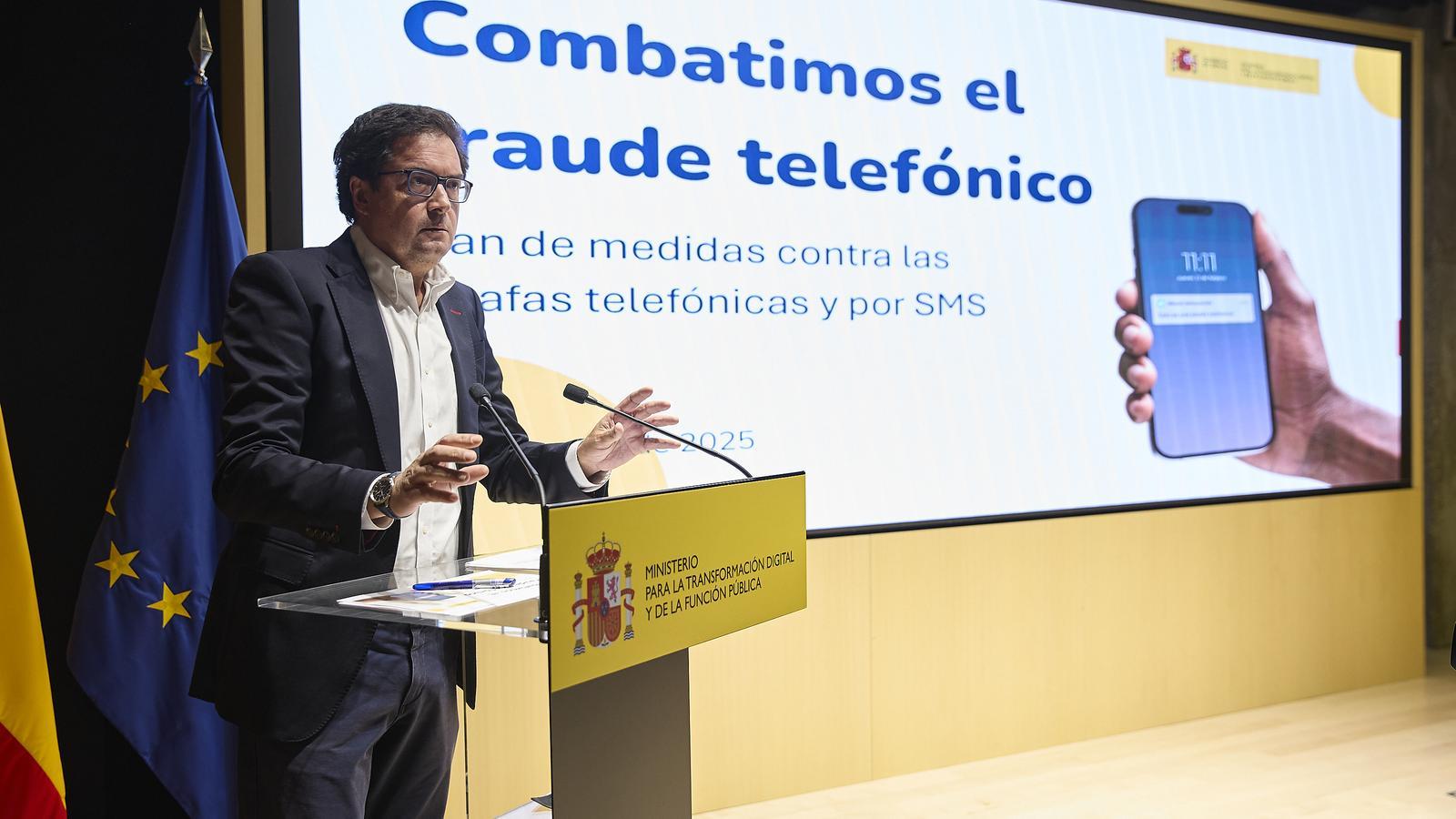More than 50 million fraudulent calls and messages blocked by telephone companies in six months
Orange, Vodafone and Telefónica are required to block numbers that have not been assigned to any customer.


BarcelonaThe Spanish government's plan to curb phone scams is beginning to yield results. In just six months, telecommunications operators have blocked more than 50 million fraudulent calls and messages. It's a reality well known to everyone and increasingly common. Text messages reporting problems with package delivery when one is expected, WhatsApp conversations asking for help because a family member has lost their phone and needs an income quickly, calls with robotic voices easily offering jobs... The list of examples is endless, and all of them are after personal data to gain access to bank accounts.
To try to put a stop to it, the Spanish government activated a package of measures half a year ago, divided into several stages. "It was a problem that was growing exponentially and causing significant economic damage," said the Minister for Digital Transformation, Óscar López. For example, since the beginning of March, companies such as Telefónica, Orange, and Vodafone are required to block calls and SMS from numbers that have not been assigned to any customer. This is the case for numbers beginning with 3 or 4.
So far, the plan has worked best in blocking calls: nearly 48 million have been stopped, while only 2.2 million messages have been prevented. The cost of all these measures is being borne entirely by the telephone companies.
Stopping commercial calls
The Socialist government's plan has also banned commercial calls from mobile phones in a second phase of the plan that began in June. This is one of the types of scams that most deceives users, who trust national numbers that they don't have saved in their contacts list because they are called by companies they do know. Now, companies that carry out these scams must use numbers with geographic prefixes reserved solely for commercial communications, although they are finding new ways to continue committing crimes, as acknowledged by the ministry. 800 and 900 numbers have also been enabled for these calls. These numbers designate free services and previously could only receive calls.
Likewise, operators have also started blocking calls and messages from international origins—except for numbers that are in roaming and use the phone abroad—but pretending the number is from Spain to deceive the user, another of the most common practices in cases of telephone fraud. This measure was activated after observing that many fraudulent calls originate from other countries, such as the Netherlands or the United Kingdom, but the user knows they are made from Spain.
With this second phase, scam blocking has skyrocketed. During the first three months, the average number of fraudulent calls detected daily was 235,600, while in the case of SMS messages, it was 10,000. With the new measures in place since June, daily detections grew to 434,915 calls, an 85% increase, and to 18,600 SMS messages, an 86% increase.
State database for sending SMS messages
Looking ahead to next year, the Spanish government's anti-phone scam plan plans to create an official database. Managed by the National Commission on Markets and Competition (CNMC), it will record the codes used by companies and public administrations to identify themselves when sending text messages.
"Sometimes you receive an SMS that supposedly comes from the Post Office or the DGT, but in fact it isn't. They are impersonating not only public bodies but also private companies," the minister warned. This future tool, of greater technical complexity, will make it easier to verify that only authorized entities are sending text messages and more quickly detect impersonation attempts.
Here are some recommendations from the Catalan Consumer Agency
Above all, be wary, even if it identifies itself as the bank or utility company you've contracted. Companies cannot offer or sell products or services through calls or texts without your consent.
Some signs to detect fraudulent messages: they have an unknown sender, are poorly written, are in a foreign language, or the text seems like a machine translation, or they ask for personal or banking information, usually urgently. For example, they may report a supposed blocking of a bank account, social media account, or email, the delivery of a package, or the offer of gifts or promotions...
Don't open or respond to mobile messages. Be especially careful with links you receive from unknown senders: they could lead to fraudulent pages trying to capture your personal information or install malicious programs on your phone or computer (phishing or password fishing).
Do not provide bank details (account number, passwords) or personal details (telephone number, address, ID).
If necessary, please contact the relevant company's customer service directly.
To avoid these calls on your landline, you can ask your telephone operator not to appear in public telephone directories. You can also sign up for the Robinson Lists service to avoid receiving advertising from entities or companies with which you have no relationship.
